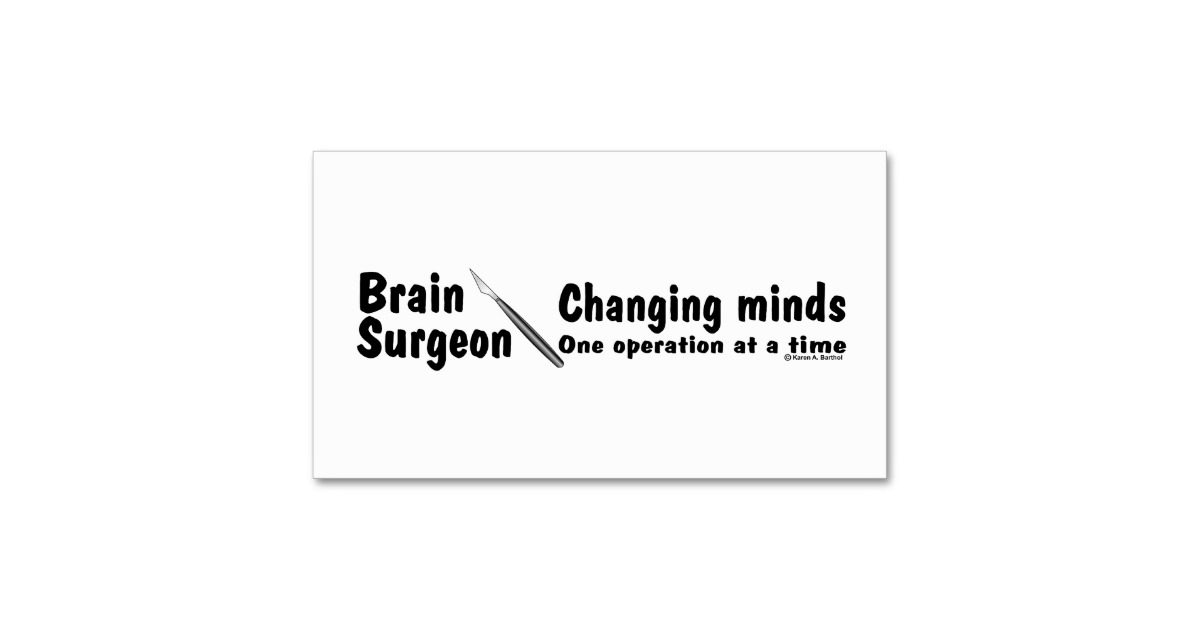Are you working longer and taking home less than your staff? Are you working all hours of the day and night and still barely managing to keep your customers happy? Are you unable to delegate or outsource work to give you more time to work on your business? If the answer to any of these questions is yes, maybe its time you learnt what Brain Surgeons do.
Most business owners we talk to believe almost everything they do in their business, only they can do. They have learnt from experience if they give work to someone else, they mess it up. And then they spend twice as long fixing things. But this is not what Brain Surgeons do. When they operate on a patient, they are not in charge of the theatre- the theatre nurse is. They don’t open up the patient, or close. They leave that to a junior surgeon. Everything is prepared for them, and someone else mops up the blood later. All they do is the brain surgery. And some marketing before hand (client needs), and afterwards (client satisfaction).
How is this possible?
Hospitals have very sophisticated systems, and everyone is highly trained in their use. There are checks and counter-checks. Nothing is left to chance. And the very expensive surgeon, the most highly trained person in the theatre, only does what he or she has been trained to do. They don’t waste their time doing jobs others can do. In other words they don’t spend dollar time on penny jobs. So the brain surgeon only does the brain surgery, and a bit of marketing.
This is, of course, a rather simplistic description of a brain surgeon’s job. And I hasten to add an apology to any brain surgeons reading this if they feel insulted (after all, you never know I might need their services in the future – some might argue my need is immediate!) The point of this for business owners is to understand where the real brain surgery is in their business. The part of their job that is most valuable to the business. The part only they can do.
Examples of brain surgery are: the marketing of your business, the relationships with your key customers, or if you are a consultant, the analysis of the problem you have been asked to solve. Not data entry, or possibly even data collection. And not the bookkeeping. So the challenge for business owners is to identify what part of their role is brain surgery. Theoretically, everything else can and should be delegated or outsourced.
A great theory, but how can you make this happen in the real world?
Business Systems. When you delegate or outsource, you need to document what the person who is doing the work will receive and what they will return to you, complete with standards and the form in which they will provide it to you. Then all involved need training in the system. This takes some work, but for a small investment in your time, the dividends are huge.
The theatre nurse does not know how to do brain surgery, but they know before the operation, what equipment the surgeon will need, and when they will need it. They will also know how the theatre and patient are to be prepared. Detailed procedures will have been developed so everyone in the theatre will know their role, and the brain surgeon will have optimised his or her time doing what they have been specifically trained to do.
When you know where the brain surgery is in your business, you will be able to leverage your time. You will spend more time with your customers, and more time working on your business, rather than in it. Ultimately, you will have a business that runs without you.




 D.JIBODH [2016]
D.JIBODH [2016]



